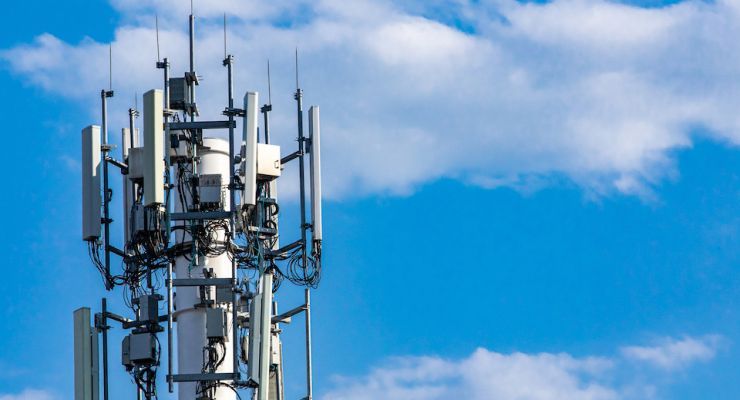It seems like there’s always some new “life-changing” technology about to be unveiled and introduced to the world. Most of the time, these changes are minor and rarely impact your day-to-day life. Or, they’re so gradual that they can be hard to notice until hindsight is in your favor. One new development, however, surrounds something you use every day and carry around in your pocket…your smartphone. As cell networks become increasingly crowded with excessive data traffic, installing the 5th generation of cellular technology has become a priority. Some people believe that 5G networks could damage your health…do you need to be concerned?
What is 5G?
5G is an incredible technical achievement designed to give users data rates that are 10 to 100 times faster than current 4G networks. This paves the way for autonomous, self-driving cars, augmented reality, and other data-heavy technological advancements that have been limited on the existing network. This means that new infrastructure is required to support such immense, widespread change.
So what’s the problem?
Many groups are concerned about 5G due to the very high-frequency spectrum millimeter wavelengths that have been used in early deployments of the technology. Since the advent of cell towers, radiation has always been the chief concern, and the argument is no different now.
However, where existing cell towers rely on the same radio-frequency bands of the electromagnetic spectrum as they have since mobile devices were first introduced, new 5G towers will expand into the higher frequencies of millimeter waves. Millimeter waves are different than typical frequencies, in that the signal is easily interrupted by things like trees and buildings. This means a lot of little, small cell towers perched in strategic places around a city such as on top of buildings, light poles, and their own structures.
Aside from the fact that these small towers could quickly clutter up and area and be unsightly, unwelcome additions in certain neighborhoods, there is also an outcry against the high levels of radiation that they will emit.
Is it dangerous?
Reports about the safety of 5G have been numerous and conflicting on many accounts. Some support this technology, arguing that ionizing radiation, such as UV rays, is the dangerous type of radiation because it can break chemical bonds, whereas nonionizing radiation, such as that produced from cell towers, does not have enough energy to damage cells directly.
Of course, this does not stop skeptics from pointing out the results of scattered studies and isolated incidents that indicate that there is some risk involved. People have long believed that exposure to radio airwaves can cause brain cancer, reduced fertility, headaches in children, and other illnesses, leading to a boycott of microwaves and cellular devices. While most large-scale studies haven’t found a link between radio frequency signals and disease, the World Health Organization made a statement in 2011, indicating that there may be a link between cancer and cellphone radiation. Of course, there was no conclusive cause and effect; however, the results are worth keeping in mind. Their classification of cellular radiation fell under the category of “possibly carcinogenic to humans” which includes things like caffeine. Yes, the risk is there, but there isn’t much evidence for it in a real-world setting.
Typically, high exposure levels to radiofrequency (RF) energy can be hazardous, but this is usually only in extreme circumstances like occupations that involve spending time around high-powered radio frequency transmitters. Typical use does not seem to be harmful. However, and this is critical, many experts believe that cell companies and governments are rushing the introduction of 5G cell towers as there have been no major human studies confirming long term safety. If there are any adverse effects from widespread 5G use, it will be some time before these results are seen in the wider population.
What can you do?
The answer to the 5G dilemma isn’t to live in a bubble and cut yourself off from technology and society. However, you should be educated and take the time to learn the potential risk of emerging technological developments. As of right now, there is no need to be concerned or alarmed as scientists and researchers continue to examine the evidence and search for any potential safety concerns.
Regardless, it is always a good idea to limit your time on your electronic devices and spend time away from the screen in the great outdoors. We could all use more fresh air and sunshine.
-Susan Patterson

